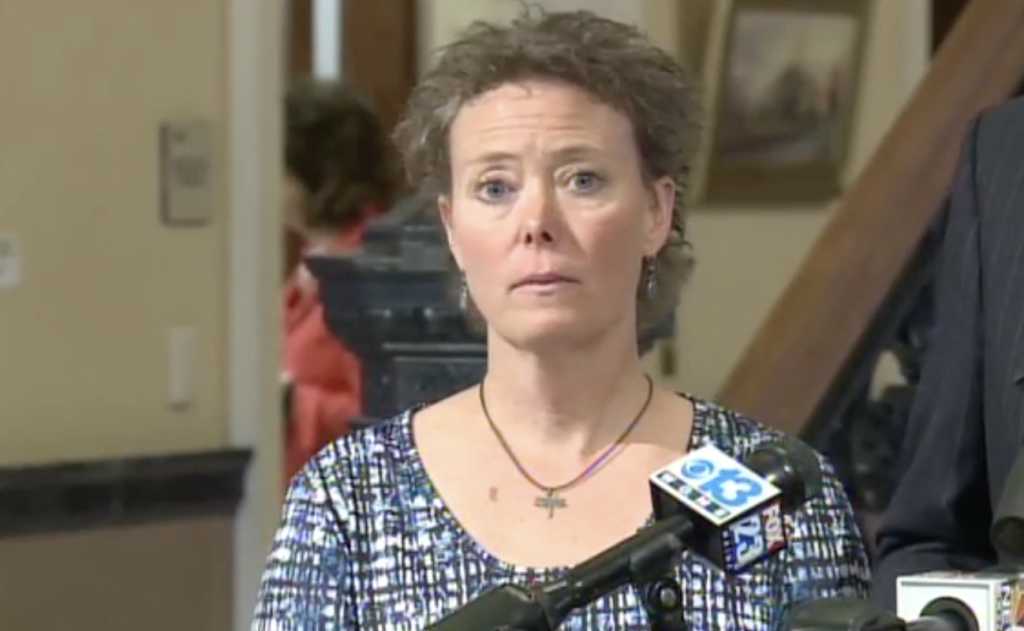An employee at a public school system in Augusta, Maine, filed a complaint with the U.S. Equal Employment Opportunity Commission, on Tuesday, alleging religious discrimination.
Toni Richardson, who works as an educational technician at Cony High School within the Augusta School Department, said in the filing that she was told by superiors not to tell co-workers during private conversations that she would pray for them and to refrain from saying things like, “You were in my prayers.”
Richardson said she was shocked after being punished for telling a co-worker that she would pray for that individual, according to her attorneys with First Liberty Institute, a conservative law firm. She wants the school district to rescind her reprimand and to let officials know that it is permissible to discuss faith in private discussions, WMTW-TV reported.
“I was shocked that my employer punished me for privately telling a coworker, ‘I will pray for you,'” Richardson said in a statement. “I am afraid that I will lose my job if someone hears me privately discussing my faith with a coworker.”
According to her account, she was encouraging a coworker, with whom she attends church, and said that she would offer up prayers for that individual. Somehow, the district reportedly got involved and started asking whether she had told coworkers about her private religious beliefs during various conversations.
Richardson said she later received a memo that instructed her to avoid such topics while talking privately with co-workers. It’s unclear what sparked that action, though WABI-TV reported that the “memo states Richardson may have imposed a strong religious or spiritual belief system in light of a disagreement with said coworker.”
The EEOC complaint, written by Richardson, does seem to reference a dispute between the co-workers:
I am writing to file a charge of religious discrimination and retaliation against my employer, the Augusta School Department in Augusta, Maine. After I made several verbal reports about a co-worker, my employer started an HR investigation. Instead of reassuring me that the school will stop the co-worker who had intimidated me and was creating a hostile environment for me, the director of our program, called me into a meeting and interrogated me about my religious beliefs. She reprimanded me for “identifying” myself as a Christian to other employees and for making simple faith-based statements at work, such as “That’s a blessing” or “I will keep you in my prayers.” She ordered me to never make any faith-based statement while on school grounds, even in private conversations with other employees. The next day, I received a written memorandum threatening additional discipline or termination if I “reference [my] spiritual or religious beliefs” or “use phrases that integrate public and private belief systems when in the public schools.” In response to my reports, the school took away my private free speech rights, discriminating against me because of my religious beliefs.
The Augusta School Department responded to the news of the EEOC filing by expressing disappointment, saying that they had communicated with Richardson’s lawyers that they wanted to resolve the dispute, but had not heard back.
“Ms Richardson’s concerns about the coaching memorandum first came to our attention when her lawyers wrote to us,” the district said. “We responded by making it clear that the Augusta School Department recognizes the rights of employees to hold and express religious beliefs and it never was our intent to unlawfully restrict those rights.”
The district went on to admit that it re-wrote the memorandum to make these ideals clear and that they were waiting to hear back from First Liberty on that front but had not heard anything; Richardson is also represented by Maine-based firm Eaton Peabody.
“We remain believers that here in Maine important issues like this are best resolved through honest and open dialogue, and we believed that is exactly what was happening — and it is so disappointing that our commitment was evidently not shared,” the statement continued. “While we disagree with some of the allegations that have been made, now is not the time and place to get into a debate over those issues.”
The EEOC can respond to the complaint in a variety of ways, including telling the Augusta School Department to cease the alleged discrimination, ordering mediation or simply taking no action and allowing Richardson to file suit, according to her attorneys.
—
Other Must-Read Stories:
– Kirk Cameron Warns ‘We’ll Destroy Each Other’ If Americans Don’t Take These Key Steps
– Did Crocodiles Really Eat a Pastor Who Was Trying to Walk on Water Like Jesus?
– Comedian Chris Rock Reveals Past Porn Addiction and the Negative Impact It Had on His Life



